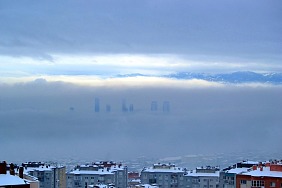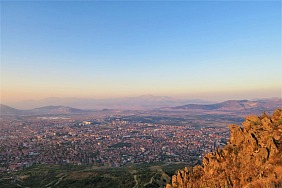Are you a tech-savvy professional interested in exploring remote work opportunities in Europe? Remote work has become increasingly popular in recent years, offering professionals the flexibility and work-life balance they need to achieve their career goals. However, navigating legal considerations and securing a remote work visa can be a challenging and daunting process. In this article, we’ll provide an overview of the process for securing a remote work visa in Europe and explore the key considerations for finding the right job and making the transition to a successful remote worker.
Understanding the Requirements for a Remote Work Visa in Europe
The process for securing a remote work visa in Europe will vary depending on the country you wish to work in. Generally, remote workers will need to apply for a long-term visa or residency permit and provide evidence that they can financially support themselves while in the country. Depending on the country, you may also need to provide proof of health insurance, a criminal record check, and other supporting documents. It’s important to research the specific requirements for each country as the process and documentation requirements can vary significantly.
In addition to the visa requirements, remote workers should be aware of the legal considerations for working in the country. This includes understanding the local tax requirements, the labor laws, and any other regulations that may apply. Researching these requirements in advance will ensure that you’re aware of what to expect and can avoid any potential legal issues.
Finding the Right Remote Job and Preparing for the Move
Once you’ve done your research and understand the legal requirements for a remote work visa in Europe, the next step is to find the right job. There are many job boards and websites dedicated to helping remote workers find the right job. Examples include Remote.co, FlexJobs, and We Work Remotely. It’s important to do your research and read reviews before applying for a job to ensure that it’s a good fit for you.
Once you’ve found the right job, your next step is to prepare for the move. This includes researching the best places to live in the country, finding a place to stay, and determining the best way to transport your belongings. You should also research the cost of living in the country and make sure that you’ll be able to support yourself while working remotely. Finally, it’s important to research the local culture and customs so that you can make the most of your experience.
Productivity and Communication Tips for Remote Workers
Once you’ve secured your remote work visa in Europe, it’s important to stay productive and communicate effectively with your team. There are a few tips that can help you stay on top of your work and ensure that you’re communicating effectively. First, it’s important to set a schedule and stick to it. This includes setting aside time for regular team meetings, dedicated time for personal tasks, and time for breaks. It’s also important to use the right tools for communication and collaboration, such as Slack and Zoom.
Finally, it’s important to stay organized and motivated. This includes setting goals and breaking them down into smaller tasks that can be accomplished in a day or week. It’s also important to take breaks and get away from your workspace to clear your mind and stay focused. Taking a walk, listening to music, and spending time with friends and family can all help you stay productive and motivated while working remotely.
Career Development Opportunities for Remote Workers
Finally, it’s important to understand the career development opportunities for remote workers. There are many resources available to help you network and find new opportunities, such as remote job boards and virtual events. Additionally, many companies offer mentorship programs and other resources to help you develop your skills and advance your career. Exploring these opportunities can help you build a successful career as a remote worker.
Securing a remote work visa in Europe is a challenging but rewarding process. With the right research and preparation, you can make the transition to a successful remote worker and explore the career opportunities available in Europe. With the right tools and techniques, you can ensure that you’re staying productive and communicating effectively with your team, and taking advantage of the career development opportunities available to remote workers.














